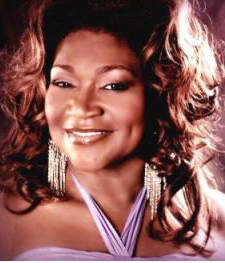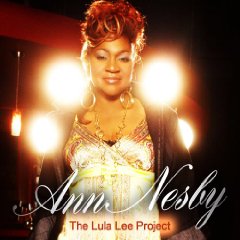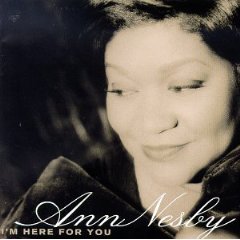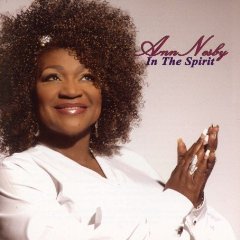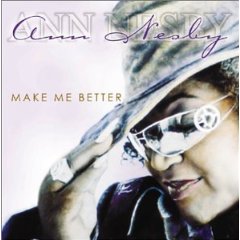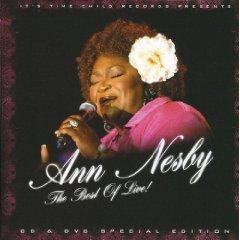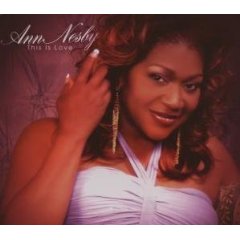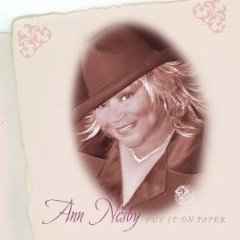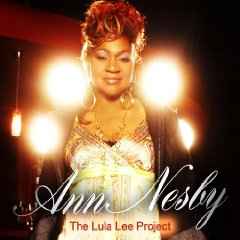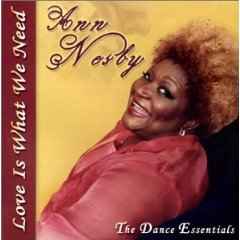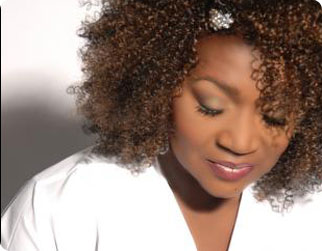Nesby's emotionally abusive marriage broke up, and she began taking steps to broaden her musical horizons. She took vocal workshops with the legendary singer and choir leader the Rev. James Cleveland, and in 1984 began singing backup for Patti LaBelle, who would later record a number of Nesby's original songs. In 1986 Nesby appeared in a gospel musical, Sing Hallelujah, that premiered in Cincinnati and moved on to New York City the following year.
In 1988 Nesby made a trip to Minneapolis to visit her older sister, Shirley Marie Graham, a member of the Twin Cities-based and nationally known Sounds of Blackness choir. After filling in at a rehearsal for a Christmas musical in which the choir was participating, Sounds of Blackness director Gary Hines quickly made her part of Sounds of Blackness and was featured as lead vocalist on recordings like "Optimistic," which, thanks to the sharp production values overlaid on a gospel foundation by the hit-making team of Jimmy Jam and Terry Lewis, attracted listeners far beyond regular gospel circles.
By 1996, Nesby felt ready for prime time and released a solo album, I'm Here for You, on Jam and Lewis's Perspective label. Nesby saw chart action with the single "I'm Still Wearing Your Name," but the album, which was divided between religious and secular material, didn't carve out a distinctive image for Nesby in the marketplace. After a merger between Perspective and the giant hip-hop label Interscope, Nesby found herself without a contract.
Moving from Minneapolis to Atlanta in 1997, Nesby quickly found other outlets for her vocal talents. She appeared on stage in "Diary of a Mad Black Woman" playwright Tyler Perry's "I Know I've Been Changed," whose touring production featured Nesby's "I'm Still Wearing Your Name." That led to a slot in a gospel musical, Cover Girls, written by Dallas pastor T.D. Jakes. Nesby contributed songs to several film soundtracks, including that of Batman. The acting experience led to a part for Nesby in the Beyonce Knowles/Cuba Gooding film The Fighting Temptations (2003). She played the role of a woman named Aunt Sally, who offers a large bequest to her nephew (Gooding) if he will agree to direct a church choir and enter it in a gospel music competition.
Music remained front and center in Nesby's life, however. In 2002 she and her second husband, Timothy Lee, formed their own Time Child label and released the Put It on Paper album, a rousing collection of old-school tracks that won distribution from the large Universal conglomerate. The album's title track was a duet with another of Nesby's idols, Al Green, and it brought the singer another Grammy nomination, this time in the Traditional R&B category. Green, according to Craig Seymour of the Atlanta Journal-Constitution, complimented Nesby as "a real soul sista."
Pushing forward she released Make Me Better in 2003 which features a guest appearance by rapper King Cyz and won praise from the Washington Post as "a spirited and spiritual blend of gospel, soul, and hip-hop, pitched somewhere between the pulpit and the disco."
Ann Nesby the Best of Live, released in early 2007, enabled her admiring listeners to experience the full force of what Jon Bream of the Minneapolis Star Tribune called "one of the most magnificent voices of our time."
Hot on the heels of her critically acclaimed late 2007 album This Is Love, which spawned a GRAMMY-nominated single, “I Apologize"), Nesby returned to the studio to craft The Lula Lee Project alongside an array of musical geniuses: gospel music maverick Tonex (John P. Kee, Tarralyn Ramsey, Montell Jordan); Herb Middleton (SWV, Faith Evans, Mary J. Blige); J. Isaac (James Grear & Company, Juelz Santana); Debra Killings (TLC); and others.

